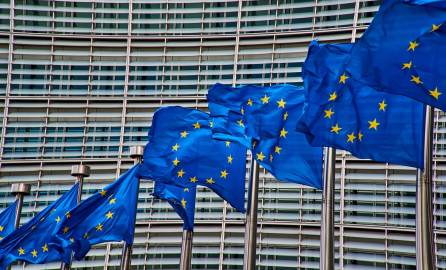The European Commission has opened a public consultation addressing civil society organisations to contribute to the future EU policy on "Civil Society Organisations in Development Cooperation". Kristian Schmidt, Director of Human and Society Development at EuropeAid, comments on the need for improved dialogue at various levels to realise the new role foreseen for civil society organisations.
From March 12th to May 7th 2012, civil society organisations (CSOs) and other stakeholders have the opportunity to share their viewpoints and record best practice to inform the future policy of the EU support to CSOs in the field of development cooperation. A public consultation has been launched, which can be accessed on-line. In addition, consultation meetings are being organised by Delegations in partner countries.
“We really hope that we will go beyond, if I may say, the ‘usual suspects’,” said Kristian Schmidt, Director of Human and Society Development at EuropeAid, in Brussels last week. “We want to engage with civil society in the South, and in the East - in our neighbourhood - we want to have replies from some of the people that we may not normally reach.”
In the post-Busan context, and building on the results of the Structured Dialogue, CSOs are increasingly recognised as development actors in their own right, playing a key role in promoting democratic governance, equitable development and inclusive growth. Their viewpoints are invited to help confirm and inform issues in line with the Agenda for Change that are proposed in the consultation paper.
“Traditionally we have worked with NGOs for service delivery. That remains very important but as countries that we work with become richer, more developed, we think that we should move on from that role,” said Mr Schmidt. “We should also work with NGOs to scrutinise what we do – to help keep governments accountable on the effectiveness of the aid - so [CSOs] can play a role more as ‘watchdogs’; not just of their own government but also of us, the European Commission - are we spending the money well? That would be an interesting role, we believe, for civil society in the future.”
An enabling environment will be essential to realising this new role. However, in many countries CSOs face increasing challenges relating to the restricting legal and political space in which they operate. Paradoxically, this is happening in some countries in the wake of the Arab Spring. “[In] some of the countries that had revolutions, you see a shrinking space for civil society. Overall in the world, probably democracy is advancing but it is a paradox that some of these countries actually pass laws that are restricting the freedom of NGOs to work and play the role that we would like to see, so the Communication will also set out the issues that Europe would like to address in our policy dialogue with those governments allowing civil society to play a role,” continued Mr Schmidt.” You know, if somebody does not agree with you, that person is not your enemy. Maybe they have good advice to do things better and that is the role that we would like to see civil society being allowed to play,” he added.
The new Communication, the first on the issue since 2002, will also provide orientations to EU Delegations on how to better engage with and support CSOs. According to Mr Schmidt, best results will come through assertive action at field level.
“The advice that I would give to our colleagues in Delegations is to get out of the office and meet with civil society – they are looking for more than money, they are looking for dialogue. We need to map them and we need to know who can be called on to get a second opinion when we are conducting our policy dialogue with the government,” said Mr Schmidt. “It is a capacity problem; it requires training, adequate human resources but it is something that we must do if we are able to deliver on the promises of the Agenda for Change and I think if we are more assertive and better informed it will improve our development cooperation.”
“My advice to civil society is the same: be more assertive and you will find Europe by your side,” he concluded.
The policy will be announced later in 2012.
[UPDATE 8 MAY 2012: Please note that the consultation is now closed and the contributions are being analysed.]
This collaborative piece was drafted with input from Virginia Manzitti and Renee Zandvliet with support from the capacity4dev.eu Coordination Team.

Log in with your EU Login account to post or comment on the platform.